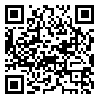Volume 2, Issue 4 (january 2019)
ohhp 2019, 2(4): 320-333 |
Back to browse issues page
Download citation:
BibTeX | RIS | EndNote | Medlars | ProCite | Reference Manager | RefWorks
Send citation to:



BibTeX | RIS | EndNote | Medlars | ProCite | Reference Manager | RefWorks
Send citation to:
Pooladi Kharasha T, Esmaeili Shad B. The relationship between role overload and organization deviant behaviors with intermediary role of emotional exhaustion in staff of hospital. ohhp 2019; 2 (4) :320-333
URL: http://ohhp.ssu.ac.ir/article-1-143-en.html
URL: http://ohhp.ssu.ac.ir/article-1-143-en.html
islamic azad university
Abstract: (3392 Views)
Introduction: This research aimed to study the relationship between role overload and organization deviant behaviors with intermediary role of emotional exhaustion.
Method: The research is applied and correlation. The statistical population includes all nurses and administrative staff of Bojnoord Imam Ali hospital 325 people and according to Krejcie- Morgan table, sample size of 152 was calculated and people were randomly selected to complete questionnaires. The data collection was used Bodankin and Tziner organization deviant behaviors (2009), role overload (1990) and Maslach and Jackson emotional exhaustion (1981). The validity questionnaires was confirmed of content and nominal. The reliability questionnaires was confirmed by Cronbach's alpha value of 834% organizational deviant behavior questionnaire, role overload 812% and 796% respectively emotional exhaustion. To test the hypothesis, the structural equation model was used and the application Lisrel.
Results: showed there was organizational role overload with deviant behaviors indirect and mediated by emotional exhaustion significantly correlation amount 23%, between role overload with deviant behaviors significant relationship amount 0/593 and significant relationship between role overload and emotional exhaustion among employees to 0/389. To compare the means of the population by two independent random samples of populations was used of two-sample T-test and results showed that gender and role overload variables affect service records, not emotional exhaustion and organizational deviant behaviors.
Conclusion: Results indicate that the organizational role overload with deviant behaviors, there is no direct relationship and indirectly causing deviant behaviors are mediated by emotional exhaustion so managers and planners need to carefully consider the emotional states and psychiatric staff.
Method: The research is applied and correlation. The statistical population includes all nurses and administrative staff of Bojnoord Imam Ali hospital 325 people and according to Krejcie- Morgan table, sample size of 152 was calculated and people were randomly selected to complete questionnaires. The data collection was used Bodankin and Tziner organization deviant behaviors (2009), role overload (1990) and Maslach and Jackson emotional exhaustion (1981). The validity questionnaires was confirmed of content and nominal. The reliability questionnaires was confirmed by Cronbach's alpha value of 834% organizational deviant behavior questionnaire, role overload 812% and 796% respectively emotional exhaustion. To test the hypothesis, the structural equation model was used and the application Lisrel.
Results: showed there was organizational role overload with deviant behaviors indirect and mediated by emotional exhaustion significantly correlation amount 23%, between role overload with deviant behaviors significant relationship amount 0/593 and significant relationship between role overload and emotional exhaustion among employees to 0/389. To compare the means of the population by two independent random samples of populations was used of two-sample T-test and results showed that gender and role overload variables affect service records, not emotional exhaustion and organizational deviant behaviors.
Conclusion: Results indicate that the organizational role overload with deviant behaviors, there is no direct relationship and indirectly causing deviant behaviors are mediated by emotional exhaustion so managers and planners need to carefully consider the emotional states and psychiatric staff.
Type of Study: Research |
Subject:
Statistical
Received: 2018/09/7 | Accepted: 2019/05/21 | Published: 2019/02/19
Received: 2018/09/7 | Accepted: 2019/05/21 | Published: 2019/02/19
Send email to the article author
| Rights and permissions | |
 |
This work is licensed under a Creative Commons Attribution-NonCommercial 4.0 International License. |






